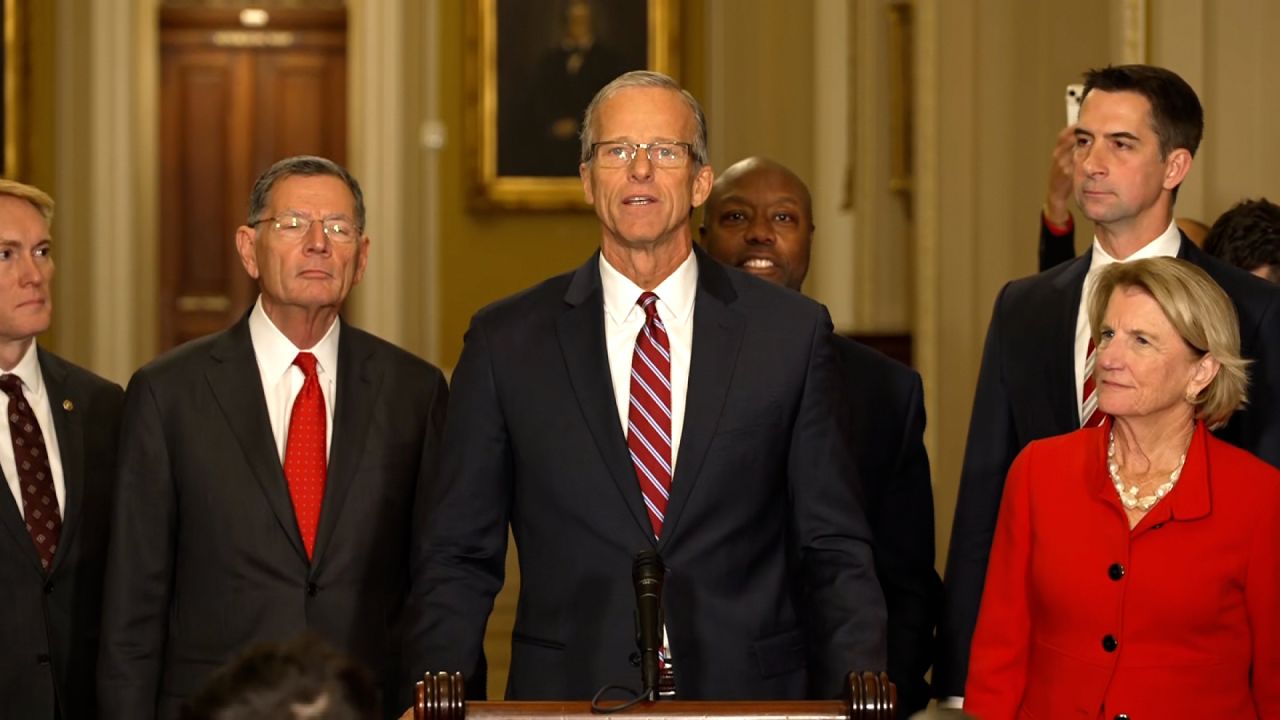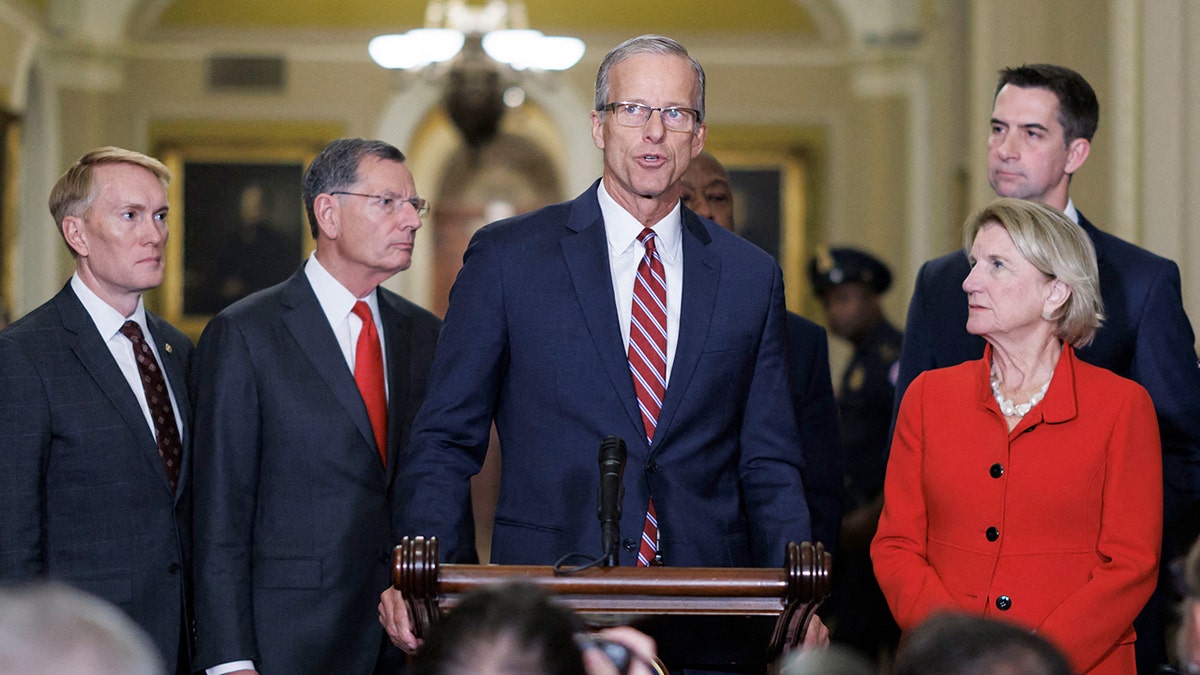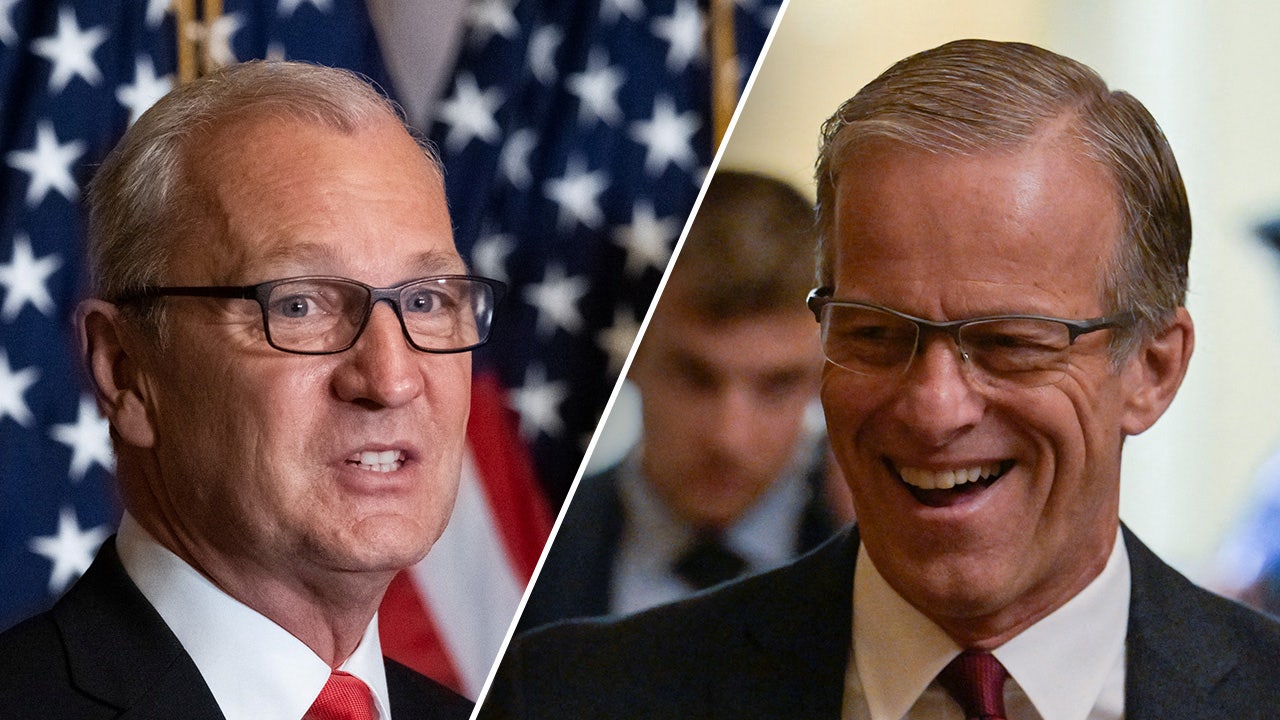Is John Thune Gay? Exploring The Facts And Clearing Misconceptions
The question "Is John Thune gay?" has gained attention in recent years, sparking debates and discussions in both political and public spheres. As a prominent figure in U.S. politics, Senator John Thune's personal life often becomes a topic of interest for media outlets and the public alike. However, it's essential to approach this topic with facts, respect, and understanding. This article aims to provide a comprehensive analysis of the subject while ensuring the information remains accurate and unbiased.
John Thune, a Republican Senator from South Dakota, has served in various capacities in the U.S. government, including as a member of the House of Representatives and later as a Senator. His career has been marked by significant contributions to policy-making and leadership roles within the Republican Party. Despite his achievements, personal questions about his sexuality have occasionally surfaced, leading to speculation and misinformation.
In this article, we will delve into the origins of these rumors, explore the evidence (or lack thereof), and provide a balanced perspective on the matter. By examining the facts and addressing misconceptions, we aim to foster a better understanding of John Thune's life and career. Let's begin by understanding who John Thune is and what makes him a significant figure in American politics.
Read also:Discover The Magic Of Four Seasons Serengeti A Yearround Safari Adventure
Table of Contents
- Biography of John Thune
- Origins of the Rumors
- John Thune's Personal Life
- Media Coverage and Sensationalism
- Impact on His Political Career
- Public Opinion and Social Dynamics
- Legal and Ethical Considerations
- Views from Experts and Analysts
- Conclusion and Final Thoughts
- Sources and References
Biography of John Thune
Early Life and Career
John Thune was born on January 19, 1951, in Sioux Falls, South Dakota. Growing up in a modest Midwestern family, he developed a strong work ethic and a deep commitment to public service. After earning a degree in Business Administration from Augustana College, he pursued a career in law, graduating from the University of South Dakota School of Law in 1975. His legal background laid the foundation for his future political career.
Political Journey
Thune's entry into politics began in 1996 when he was elected to the U.S. House of Representatives. He served three terms before successfully challenging incumbent Senator Tom Daschle in 2004, becoming the first Republican to defeat a sitting Senate Majority Leader in over 50 years. Since then, Thune has held various leadership roles, including serving as the Senate Majority Whip and Chairman of the Senate Republican Conference.
Data and Biodata
| Full Name | John Richard Thune |
|---|---|
| Date of Birth | January 19, 1951 |
| Place of Birth | Sioux Falls, South Dakota |
| Profession | Lawyer, Politician |
| Political Party | Republican |
Origins of the Rumors
Speculation about John Thune's sexuality began to surface during his early years in Washington D.C. Political opponents and tabloid media often use personal attacks to undermine public figures, and Thune was no exception. These rumors were fueled by isolated incidents and unsubstantiated claims, which gained traction in the absence of credible evidence.
Factors Contributing to the Rumors
- Thune's reserved demeanor and focus on his work led some to speculate about his personal life.
- Opponents may have used these rumors as a tactic to discredit him politically.
- Social media platforms amplified the spread of misinformation, making it challenging to discern fact from fiction.
John Thune's Personal Life
John Thune is a married man with a family. He has been openly vocal about his Christian faith and traditional values, which are reflected in his personal life and public statements. His marriage to Julie Thune has been a central part of his life, and they have two children together.
Family and Faith
Thune's family plays a significant role in his life, and he often emphasizes the importance of family values in his speeches and public appearances. His religious beliefs also influence his stance on various social issues, including those related to marriage and family.
Media Coverage and Sensationalism
The media has played a crucial role in shaping public perception of John Thune. While some outlets have approached the topic responsibly, others have sensationalized the rumors for clicks and attention. This practice not only harms the individual involved but also contributes to a culture of misinformation.
Read also:Who Is Vir Jagannath Mhatre A Comprehensive Guide To His Life And Achievements
Responsible Journalism
Responsible journalism involves verifying facts and presenting information in a balanced manner. Unfortunately, the rise of clickbait culture has led to a decline in ethical reporting, making it essential for readers to critically evaluate the sources they consume.
Impact on His Political Career
Despite the rumors, John Thune has maintained a successful political career. His focus on policy and leadership has earned him respect from colleagues across the aisle. However, the persistent speculation about his personal life has occasionally distracted from his professional achievements.
Key Achievements
- Served as Senate Majority Whip (2015-2021).
- Chaired the Senate Republican Conference (2011-2015).
- Advocated for tax reform and fiscal responsibility.
Public Opinion and Social Dynamics
Public opinion on issues related to sexuality and gender identity has evolved significantly in recent years. While some may view personal questions about a politician's sexuality as irrelevant, others argue that transparency is crucial in a democratic society. Striking a balance between privacy and accountability remains a challenge.
Social Progress and Acceptance
The increasing acceptance of LGBTQ+ individuals in society has shifted the narrative around these discussions. However, it is important to respect the privacy of public figures unless their personal lives directly impact their public duties.
Legal and Ethical Considerations
Discussing a person's sexuality without their consent raises legal and ethical concerns. Invasion of privacy laws and defamation statutes protect individuals from unwarranted scrutiny. Journalists and media outlets must adhere to these principles to ensure fair and ethical reporting.
Key Legal Frameworks
- Invasion of Privacy Laws: Protect individuals from unwanted publicity.
- Defamation Laws: Prevent false statements that harm a person's reputation.
Views from Experts and Analysts
Experts in political science and media studies offer valuable insights into the dynamics surrounding public figures and personal questions. They emphasize the importance of respecting privacy while acknowledging the public's right to know.
Insights from Political Analysts
Political analysts argue that focusing on a politician's policy positions and leadership qualities is more productive than speculating about their personal lives. This approach fosters a more informed and engaged electorate.
Conclusion and Final Thoughts
In conclusion, the question "Is John Thune gay?" lacks credible evidence and distracts from his significant contributions to U.S. politics. While rumors and speculation are inevitable in the public sphere, it is crucial to approach such topics with respect and integrity. By focusing on his achievements and leadership, we can better appreciate John Thune's impact on American society.
We invite you to share your thoughts in the comments section and explore other articles on our site for more insightful content. Together, we can promote a culture of informed discussion and respectful dialogue.
Sources and References
- U.S. Senate Official Website
- Washington Post: "John Thune's Political Journey"
- Politico: "The Evolution of Privacy in Politics"
- Legal Information Institute: "Invasion of Privacy Laws"
Article Recommendations


